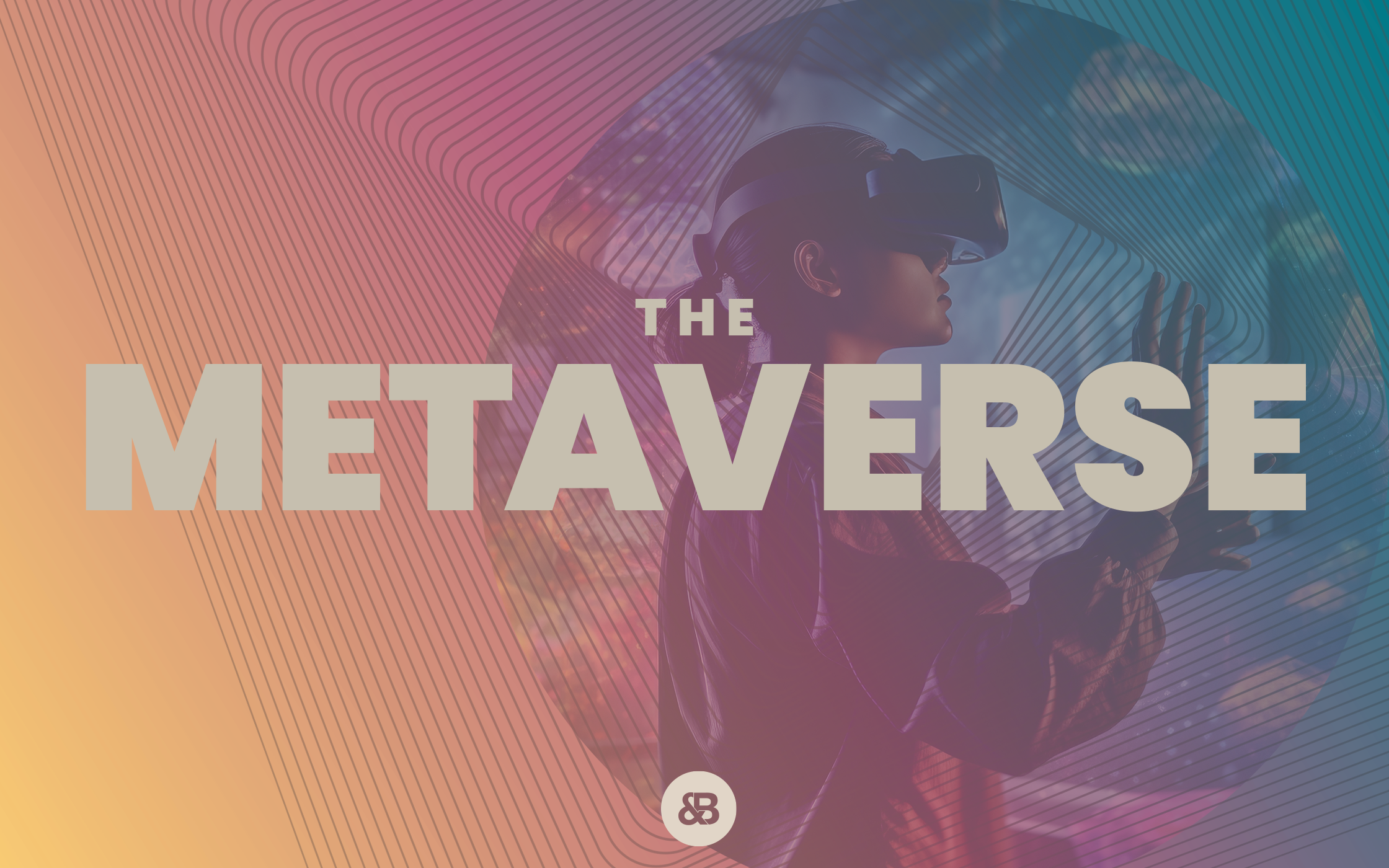What Happened To The Metaverse?
What’s Been Going On & What To Watch
By: Rebekah Essick, Group Account Director
Not too long ago, the metaverse was all the buzz. Now, the conversation has shifted to AI and mentions of the metaverse are less frequent. Between the significant decrease in discussions and many companies pulling back on their resources devoted to the metaverse, many are left wondering what its future holds. If you read my last blog, you’ll know many of the early discussions around the metaverse were a bit lofty. And some of it was just a new way of talking about existing technologies – taking it all a step further.
THE METAVERSE STILL EXISTS AND IS EVOLVING WHETHER WE TALK ABOUT IT OR NOT
The development of the metaverse may be slower than we originally expected, but it’s still happening. Most of this development is taking place within gaming communities. There is debate on whether Roblox should be considered a part of the metaverse. Currently, it is the largest and most widely adopted metaverse or metaverse-like platform. There is some growth in true metaverse platforms like Decentraland, but it has been much slower.
To see how the metaverse will evolve and be adopted, Roblox is the player to watch. Whether or not you agree this platform is truly a part of the metaverse, it is likely how most consumers will get their feet wet in a metaverse-like platform, leading to larger adoption down the road. Brands should pay attention, and many are already coordinating activations within Roblox and other metaverse worlds.
THE DEVELOPMENT OF OTHER EMERGING TECHNOLOGIES WILL SHAPE HOW THE METAVERSE EVOLVES
This point will look familiar if you read my last blog on this subject. But let’s talk about it in relation to the latest buzz: Artificial Intelligence. The subject of AI is a behemoth unto itself (read our blog about it here), and many have shifted away from talking about the metaverse to talking about AI instead, but the two are connected. AI’s growth will change how the metaverse evolves.
Generative AI will likely play a huge role in building out different aspects of the Metaverse and the technology needed to make it a more cohesive experience. AI can create landscapes, buildings, objects, effects, and more, making those things much more life-like. Leveraging AI within the metaverse will help us build a much more immersive and interactive experience – one that consumers want to play in. Additionally, using AI within the metaverse can allow consumers to easily create their own world to play in, once again making the space more enticing.
CHIEF INNOVATION OFFICERS OVER CHIEF METAVERSE OFFICERS
When the metaverse first started making big news, many large organizations created roles for Chief Metaverse Officers (or something similar) to handle company growth and development around the metaverse. As the metaverse has taken a backseat to AI, many of those positions have had to evolve. But removing any strategy around the metaverse from your business plan isn’t a good idea. Rather, having a team focused on growth and innovation around all emerging technology, including the metaverse and AI, as well as other emerging mediums such as Web3, will ensure your organization is prepared for what is happening across the realm. Emerging technology is evolving more rapidly than ever before. Devoting resources to it will ensure your organization doesn’t fall behind.
LACK OF CONSUMER UNDERSTANDING
Adoption of the metaverse has also stalled because consumers just don’t know what it is. With ambiguous descriptions and a disjointed landscape, many have been slow to jump in simply because they don’t know how. So far, there has been a failure to communicate to the average consumer how the metaverse works and benefits their life. To be frank, there isn’t a lot of benefit to be found in the metaverse for the average consumer… yet.
We’ve seen many companies shy away from talking about the metaverse, specifically in recent months, and the main reason for this is the prevalence of consumer confusion around the topic. People are wary of what they don’t understand, and organizations have begun to understand that talking about this emerging tech may drive people away. As a result, we’ll see a more careful approach from companies in how they refer to and talk about the metaverse in the near future. As consumers learn more about the metaverse and how it impacts their lives, we’ll likely start to see wider adoption.
HOW SHOULD YOU PROCEED?
Despite the recent shift away from intense discussions around the metaverse, it should continue to be a part of your strategy for ongoing innovation. But it shouldn’t be the only strategy. Developments in the metaverse, Web3, NFTs and more should not be ignored. Certainly, AI should be included in your innovation strategy, as it’s currently the fastest-moving emerging tech. But the smartest strategy is to not focus solely on one platform. You should continue to have an integrated innovation strategy that explores all emerging trends and determines the best way for your organization to play in the space. Having a strong agency partner along the way to help you develop this strategy will ensure you’re set up for success, no matter what the future brings.
&Barr can help. Connect with us.
